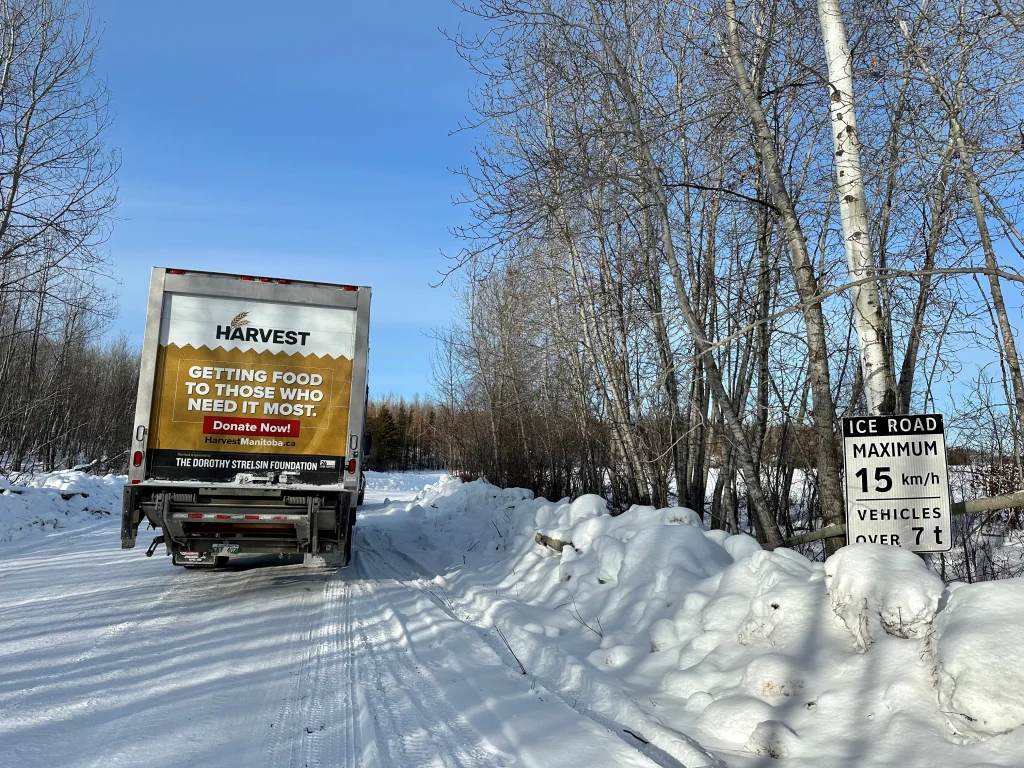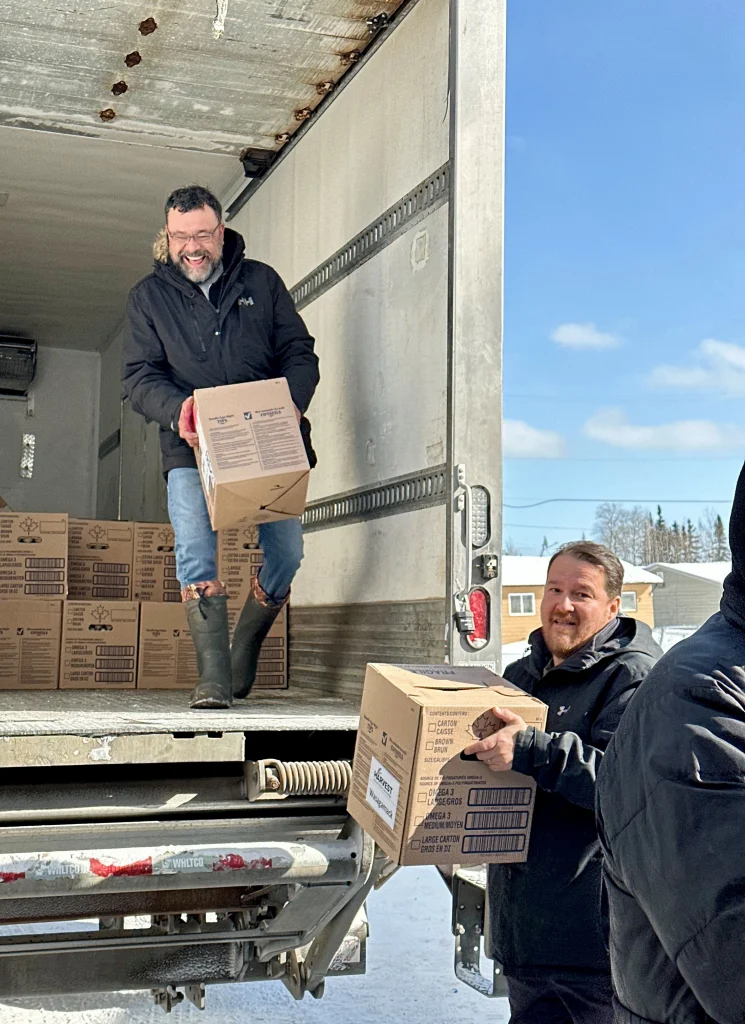Safely navigating the winter road system in northern Manitoba that many fly-in communities rely on for temporary access to more affordable food and groceries in larger urban centres comes with a long list of considerations and potential risks.

When using the 2,375-kilometre-long seasonal road system, which is built on the natural terrain of muskeg, streams, rivers and lakes, northerners making the long drive south to benefit from lower food prices need to plan in advance for the possibility of being stranded.
At a minimum, they need to carry enough fuel to reach their destination, as there are no service stops along the way. Proper clothing, survival equipment, and a satellite phone are also recommended to avoid the possibly life-threatening consequences of an accident or breakdown, adding to the exorbitant cost of the long-distance grocery run for individuals and families who are already dealing with disproportionate levels of food insecurity in Canada’s North.
The multiple ice road crossings along the way further complicate things, requiring drivers to control their vehicles on the slippery surface and keep from creating waves that can crack the ice when they strike the shoreline, sandbar, or hit a wave from a vehicle travelling in the opposite direction. The risks are even higher when fluctuating and warming weather either delays freezing or causes the road surface to rapidly deteriorate.
READ MORE: New map reveals risk of food insecurity faced by northern communities due to climate change, reduced winter road access
This year, due to unseasonably mild temperatures, the temporary lifeline to other parts of the province that about two dozen communities depend on to purchase fresh groceries and pantry staples in the face of rising food insecurity was delayed by several weeks, from the typical opening time in mid-January to February.
Jamie Wood, who serves as the food coordinator for the Garden Hill First Nation in northern Manitoba’s remote Island Lake region – which also includes the First Nation communities of St. Theresa Point, Wasagamack, and Red Sucker Lake – said the warmer-than-normal weather conditions are pushing local winter road openings later and later each year and putting people at increased risk due to the shortened season.

None of the four Island Lake communities are connected to the province’s road network, meaning shipping precious cargo like gas and groceries is generally complicated and expensive. For most of the year, food and other basic necessities can only be flown in by plane, which is why grocery store price tags rarely resemble those seen in southern, road-connected centres, such as Thompson and Winnipeg.
When the winter roads open late, Wood said people either can’t go out to buy food or risk putting themselves in danger by venturing out even when the roads haven’t been inspected or maintained.
“A paycheque doesn’t last a full two weeks if you shop locally, so people drive to Winnipeg to pick up groceries and stock up their cupboards,” Wood said. “People usually just go even if it’s not open officially … so they take their chances.”
To help improve access to sufficient, safe and nutritious food for approximately 15,000 residents in the Island Lake region, Harvest Manitoba and Anishininew Okimawin (Island Lake Tribal Council) entered into an agreement in 2022 to support the shipment and distribution of food in St. Theresa Point, Wasagamack, Garden Hill and Red Sucker Lake.
Harvest Manitoba, which distributes more than 1 million pounds of food each month to over 350 food banks and other agency partners across the province, also became the first registered food bank with Nutrition North Canada, a Government of Canada program that supports food security in isolated northern communities. This revolutionary step for the program could pave the way for more charities and food banks to claim subsidies for transporting and distributing food and essential household items in northern communities that are deemed eligible.
With this partnership and working with volunteers and leaders from the Island Lake community, Food Banks Canada’s dedicated Northern Program Officer, Jason Stevens, hit the winter roads in February 2023 to help deliver 17,000 pounds of food to people struggling to make ends meet.
The 478-kilometre, 14-hour ice road journey culminated in a pop-up food bank being created at the Kistaganwacheeng Elementary School in Garden Hill, where community members grappling with high food and grocery prices were provided with access to fruit, vegetables, beans, flour, eggs, pasta and more.
During the food distribution, Garden Hill resident Myra Harper said the program was a new and welcome experience, especially considering that local supermarket prices are often triple the price they are in the south.
“When I lived in Winnipeg, I knew that I could get help from the Ma Mawi Wi Chi Itata Centre and Harvest Manitoba,” Harper said. “But people here are struggling because there are limited jobs and the social assistance rates are not enough. They need help.”